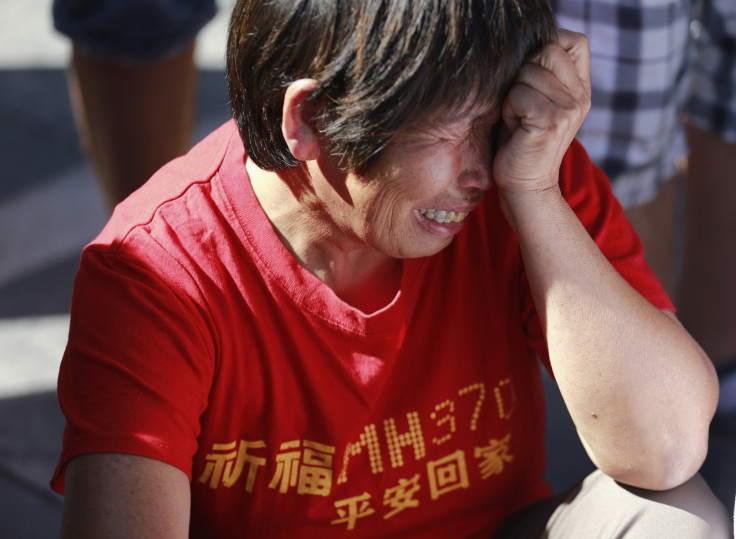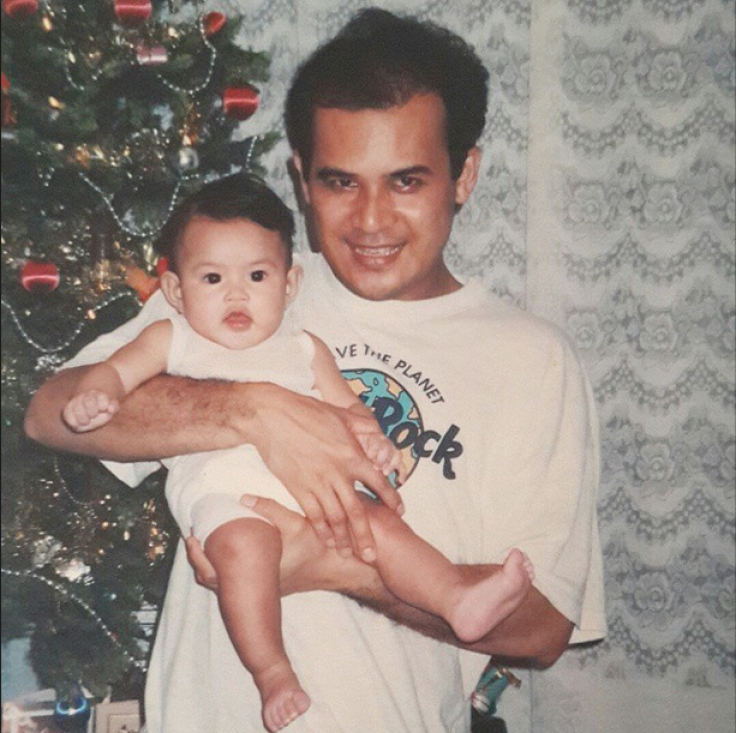MH370 One Year Later: No Closure For Families As Search Effort Continues To Flounder

Maira Elizabeth Nari appears to be like a lot of 19-year-old Malaysian girls. She’s studying broadcasting at SEGi College Subang Jaya, about 30 minutes from Kuala Lumpur. She’s a fan of “Anugerah Juara Lagu,” a popular Malaysian singing competition. She posts dozens of smiling selfies and pictures of her friends on Instagram every week. And she tweets about celebrities, funny Internet memes and finding love. But there is a darker side to her life, too, one connecting her directly to a mystery that still consumes the world, one year later.

Nari is the daughter of Andrew Nari, the chief steward aboard the doomed Malaysia Airlines Flight 370, one of the 12 crew members and 227 passengers who disappeared with the plane a year ago. On March 8, 2014, Malaysian air-traffic control lost communication with the Beijing-bound Boeing 777, about an hour after it departed. No trace of the aircraft and its occupants has been found. The mystery of MH370 has left the loved ones of those aboard as lost as the plane itself -- and without any of the closure that would come from knowing the fates of its crew and passengers.

And, in association with each major airplane disaster since then, many among them feel a perverse envy of the families of the people killed in those events.
While the relatives of those who perished in the tragedies that befell Indonesia AirAsia Flight 8501, Malaysia Airlines Flight 17 and TransAsia Airways Flight 235 are undoubtedly reeling from their own losses, Flight 370 families long for one thing those families have: a sense of finality -- or at least an explanation. In those three cases, airplane wreckage, black boxes and most bodies were eventually recovered.
“It is excruciating,” Sarah Bajc, 47, the girlfriend of American citizen and Flight 370 passenger Philip Wood, said in an interview. Watching other airline disasters unfold, she said, “wakes up old memories, floods me with empathy for the other family members and highlights how things happen in other situations.”
Every event is also a reminder of the mysterious circumstances of MH370 and of a search effort that has yielded nothing at all despite already being the most expensive in history. The lack of results is not only heartbreaking but also suspicious to many family members, who struggle to understand how a government-run, yearlong search could come up empty. “While other flights have conclusions, many of us, not just families but most Malaysians, now believe that it is weird,” Nari said.
Last year, as the search for Flight 370 began and the absence of clues continued, Nari turned to her Twitter account in a desperate attempt to communicate with her missing father, tracking her emotional turmoil as days passed without an update. “Have faith, dear self. Daddy’s fine,” she wrote in one tweet. “Daddy. It’s almost 48 hours. Where are you, daddy? Sigh,” she wrote in another.
God is protecting you, dad. Just hold on! :'D
- Maira Elizabeth. (@Gorgxous_) March 9, 2014“Daddy, Liverpool is winning the game! Come home, so you can watch the game! You never miss watching the game. It’s your first time,” Nari said eight days after the plane disappeared.
Today, she still uses her social-media accounts as outlets to occasionally speak to her father, although she displays her pain less publicly now. “So much emotions for the past few days,” she captioned a photograph of a Malaysia Airlines plane on Instagram March 4: “3 more days daddy. How time flies.”
Nari fluctuates between some moments when she can occupy herself with normal things any teenage girl is concerned about -- school, classmates, her boyfriend -- and other moments when she wrestles with not knowing how to feel. “I am doing fine, I keep myself occupied. I’m in college right now so I make myself busy,” she said in an email. But, she added: “All families are at this one point, where we have nothing to say, don’t know what to feel. Just simply tired, and lost.”
The disappearance has become almost an unmentionable burden. “We don’t think about it at home,” said Nari, who lives with her mother and her 14-year old brother.
In the online community of Flight 370 family members and loved ones with which she regularly keeps in touch, the anniversary is bringing that burden to light again. “Lately, most of us are being emotional because another few days time its gonna be a year already,” she said.
The cliché that “time heals all wounds” doesn’t really apply to MH370 families. In fact, for some, time only worsens the pain.
“It’s getting harder, not easier,” Bajc said. “I still miss Philip every day, there is a huge hole in my life ... There is no resolution at all, only escalating conflict.”
There’s a term for that: “ambiguous loss.” The concept was introduced in the 1970s by Pauline Boss, a family therapist and professor emeritus at the University of Minnesota. It describes a phenomenon where someone physically or psychologically disappears, which is commonly experienced by loved ones involved in missing-persons cases. According to Boss, who has written extensively on Flight 370, people “keep two opposing ideas in their head at the same time: they’re probably dead, but maybe not. That’s as close to the truth as they’ll ever get.”
In an interview with International Business Times 100 days after MH370 went missing, Bajc said she was “disheartened at times” over Wood’s likely fate, but still maintained that “there is zero proof that the passengers and crew are dead.” At the six-month mark, Bajc said she turned to work to distract herself from the ongoing nightmare. “The start of school is a very busy time, so I’m snowed under with work, and the energy and happiness of the children helps,” Bajc, who works as a teacher in Kuala Lumpur, told IBTimes at the time. “I am making progress keeping the tears back when some memory triggers or an innocent new colleague or neighbor asks if I am here alone or with family.”
Bajc was also one of a handful of family members who launched an Indiegogo campaign to fund an independent investigation, a response to the Malaysian government’s highly criticized recovery efforts. That fundraising effort fizzled, and Bajc said her grief is made worse by the lack of clear answers from the country’s government.
“We still know nothing about what what happened or where the plane is,” Bajc said. “I believe that is intentional. The officials have done nothing to help the family members.” She cited examples of this during the early stages of the search, when the Malaysian government failed to notify family members of updates ahead of the public, and, more recently, when unnamed government officials leaked information that the military withheld additional radar data about Flight 370. “They have only rubbed salt in the wounds repeatedly.”
For Nari, even moments of everyday happiness are still tinged with the pain of a loss that she can’t quite call a loss.
When she got a report from her college showing improving grades, she put it on Instagram. But it wasn’t just a photo of the notification. It was the image of a text she had sent her missing father, reminding him how she had promised to do better in her studies. “I wish you’re here,” she said in her text, “to see how I’m doing.”
© Copyright IBTimes 2024. All rights reserved.












